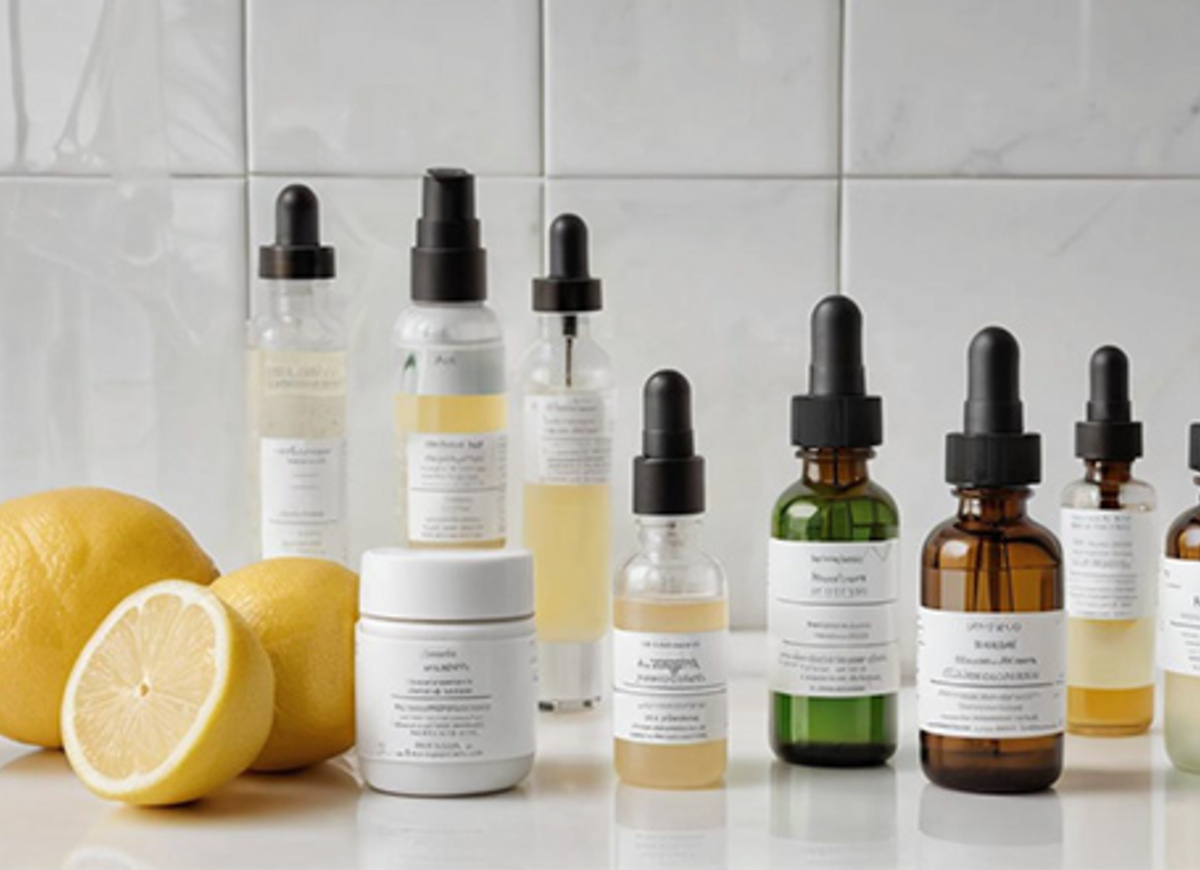Struggling with Dark Spots? Here’s How to Fix It
Skincare for hyperpigmentation can feel overwhelming, but the best dark spot treatment can make a significant difference. Whether caused by sun damage, acne scars, or hormonal changes, dark spots can impact confidence. The good news? There are effective solutions that help fade pigmentation and restore an even complexion.
Understanding Hyperpigmentation and Its Causes
Before finding the best dark spot treatment, it’s essential to understand what causes hyperpigmentation:
- Sun Exposure: UV rays trigger melanin production, leading to dark spots.
- Acne Scars: Post-inflammatory hyperpigmentation occurs after breakouts.
- Hormonal Changes: Conditions like melasma are common in pregnancy.
- Aging: Skin renewal slows down, making discoloration more noticeable.
- Skin Injuries: Cuts, burns, or insect bites can leave darkened marks.
- Genetic Factors: Some individuals are more prone to pigmentation issues due to hereditary influences.
The Role of Diet in Skin Clarity
What you eat plays a crucial role in maintaining healthy skin. Antioxidant-rich foods like berries, green tea, and leafy greens help combat skin damage and promote even skin tone. Staying hydrated and reducing processed foods can also minimize inflammation and prevent new pigmentation issues.
The Importance of Nighttime Skincare
Your skin repairs itself while you sleep, making a nighttime routine essential for reducing discoloration. Using products with retinol, peptides, and hydrating ingredients ensures optimal skin renewal. A good moisturizer seals in hydration and helps active ingredients work effectively overnight.
Best Dark Spot Treatment: What Really Works?
Finding the right skincare for hyperpigmentation requires products with clinically proven ingredients. Here are the best dark spot treatments:
1. Vitamin C Serum – Brightens and Evens Skin Tone
This antioxidant fights free radicals, fades pigmentation, and enhances skin radiance. Look for serums with at least 10% L-ascorbic acid for maximum effectiveness.
2. Niacinamide – Reduces Inflammation and Prevents Future Spots
A powerhouse ingredient that minimizes discoloration and strengthens the skin barrier. Regular use can lead to a more even skin tone and improved texture.
3. Retinol – Boosts Cell Turnover for a Smoother Complexion
Encourages new skin cells to replace pigmented areas over time. Retinol also helps with collagen production, reducing fine lines and improving overall skin health.
4. Exfoliating Acids (AHA/BHA) – Gently Removes Darkened Skin Layers
Glycolic and salicylic acids help break down hyperpigmented areas and reveal fresher skin. AHAs work on the skin’s surface, while BHAs penetrate deeper into pores.
5. Hydroquinone (Prescribed or OTC) – A Potent Spot Fader
One of the most powerful skin-lightening agents, hydroquinone directly targets excess melanin. It is available in 2% OTC formulations or higher concentrations with a prescription.
6. Sunscreen – The Ultimate Prevention Step
No skincare for hyperpigmentation is complete without SPF. Sun exposure can darken existing spots and trigger new ones. Look for broad-spectrum sunscreens with SPF 30 or higher.
7. Kojic Acid – A Natural Skin Brightener
Derived from fungi, kojic acid is an effective melanin inhibitor that helps lighten dark spots over time.
8. Azelaic Acid – Safe for Sensitive Skin
This gentle acid helps fade hyperpigmentation while reducing redness and inflammation, making it ideal for those with sensitive or acne-prone skin.
At-Home vs. Professional Treatments
While at-home skincare for hyperpigmentation works well for mild cases, professional treatments offer faster results:
- Chemical Peels: High-strength acids accelerate skin renewal, removing layers of pigmented skin.
- Laser Therapy: Targets deep pigmentation with precision, breaking down excess melanin without damaging surrounding skin.
- Microdermabrasion: Exfoliates the top layer to reveal even skin by removing dead cells.
- Microneedling: Stimulates collagen production and enhances product absorption, helping with discoloration.
Natural Remedies: Do They Work?
Some natural ingredients can help, though results may take longer:
- Aloe Vera: Soothes and reduces inflammation, promoting an even skin tone.
- Licorice Extract: Inhibits melanin production and lightens pigmentation gradually.
- Turmeric: Known for its skin-brightening properties, turmeric helps with overall skin glow.
- Apple Cider Vinegar: Contains acetic acid, which can lighten dark spots when used properly.
- Green Tea Extract: Rich in antioxidants that help protect against environmental damage and even skin tone.
How Long Does It Take to See Results?
Patience is key when treating hyperpigmentation. With consistent use, noticeable improvement usually occurs within:
- 4–6 weeks for mild cases with over-the-counter treatments.
- 3–6 months for deeper pigmentation with more intensive treatments.
- Professional procedures like lasers and chemical peels may yield results within a few sessions.
Preventing Future Dark Spots
Prevention is just as important as treatment. Follow these steps to maintain an even skin tone:
- Wear Sunscreen Daily: Sun exposure worsens pigmentation and slows down treatment results.
- Use Antioxidants: Ingredients like Vitamin C help prevent new spots from forming.
- Avoid Picking at Skin: Scratching acne or scars can lead to long-term pigmentation.
- Stay Hydrated: Proper hydration supports skin renewal and healing.
- Follow a Consistent Skincare Routine: Stick to proven ingredients and be patient with results.
Conclusion
When it comes to skincare for hyperpigmentation, the best dark spot treatment includes powerful ingredients, a consistent routine, and sun protection. Whether choosing serums, professional treatments, or natural remedies, achieving brighter skin is possible with dedication. Dark spots don’t have to be permanent—start your journey to an even complexion today and embrace your skin’s natural beauty!
Consistency and patience are key. The journey to clear, even skin doesn’t happen overnight, but with the right approach, you’ll see remarkable improvements. Don’t hesitate to consult a dermatologist for personalized recommendations. Invest in your skincare today, and enjoy the confidence that comes with a radiant, blemish-free complexion!
FAQs
1. What causes uneven skin tone and dark spots?
Dark spots can be caused by sun exposure, acne scars, hormonal changes, and aging.
2. How long does it take to fade discoloration?
Results vary, but most treatments show improvement within 4–12 weeks with consistent use.
3. Can home remedies help lighten pigmentation?
Yes, ingredients like aloe vera, turmeric, and licorice extract can gradually brighten skin.
4. Is sunscreen necessary even indoors?
Yes, UV rays penetrate windows and worsen pigmentation, so daily SPF protection is essential.
5. Which ingredients work best for dark spots?
Vitamin C, niacinamide, retinol, and exfoliating acids are effective for reducing discoloration.
6. Do professional treatments provide faster results?
Yes, procedures like chemical peels, laser therapy, and microneedling accelerate skin renewal.
7. Can I use multiple brightening products at once?
It depends on your skin type; layering too many actives can cause irritation and sensitivity.
8. Will my spots return if I stop treatment?
Without maintenance and sun protection, pigmentation can resurface over time.
9. Are dark spots more common in certain skin types?
Yes, individuals with medium to dark skin tones are more prone to hyperpigmentation.
10. How can I prevent new discoloration from forming?
Daily sunscreen, antioxidants, and a consistent skincare routine help prevent future dark spots.





